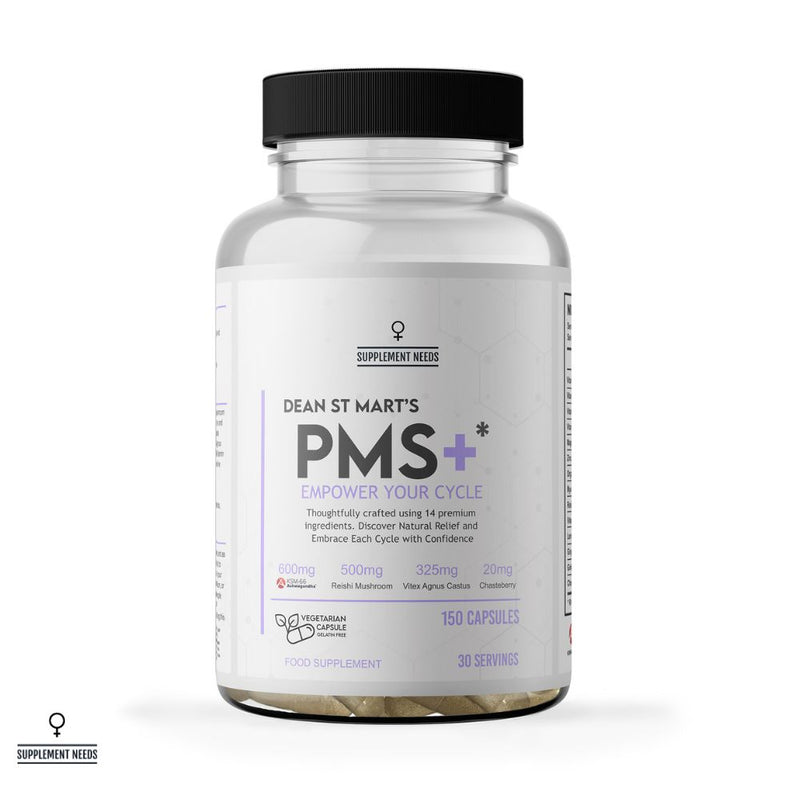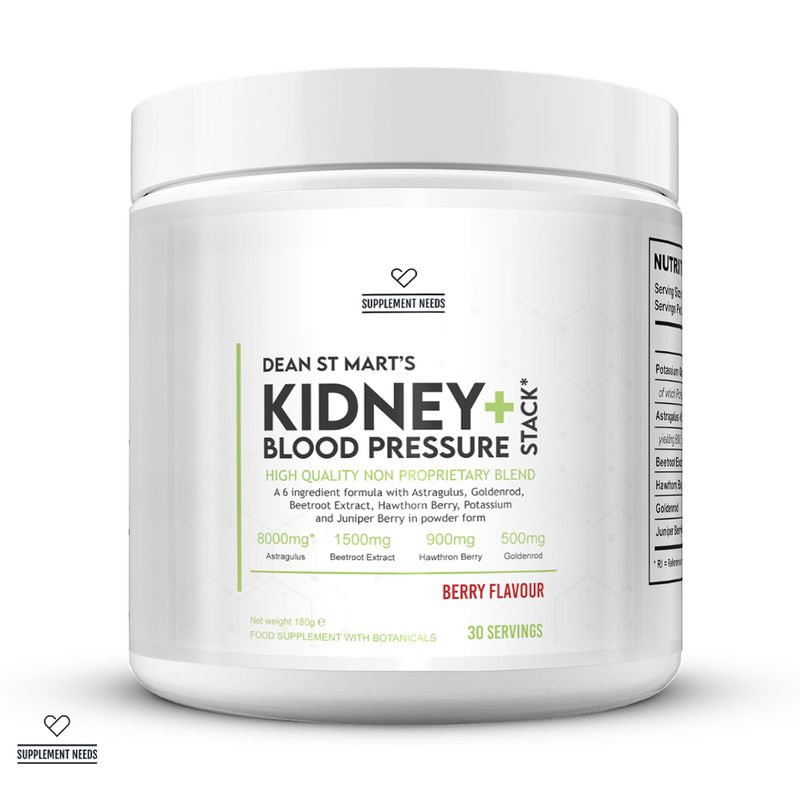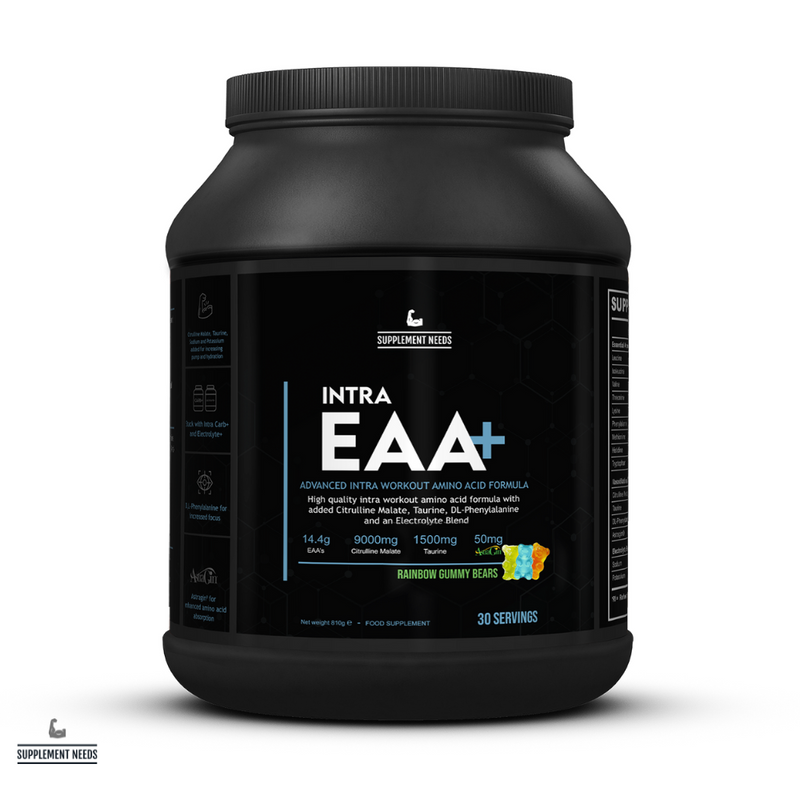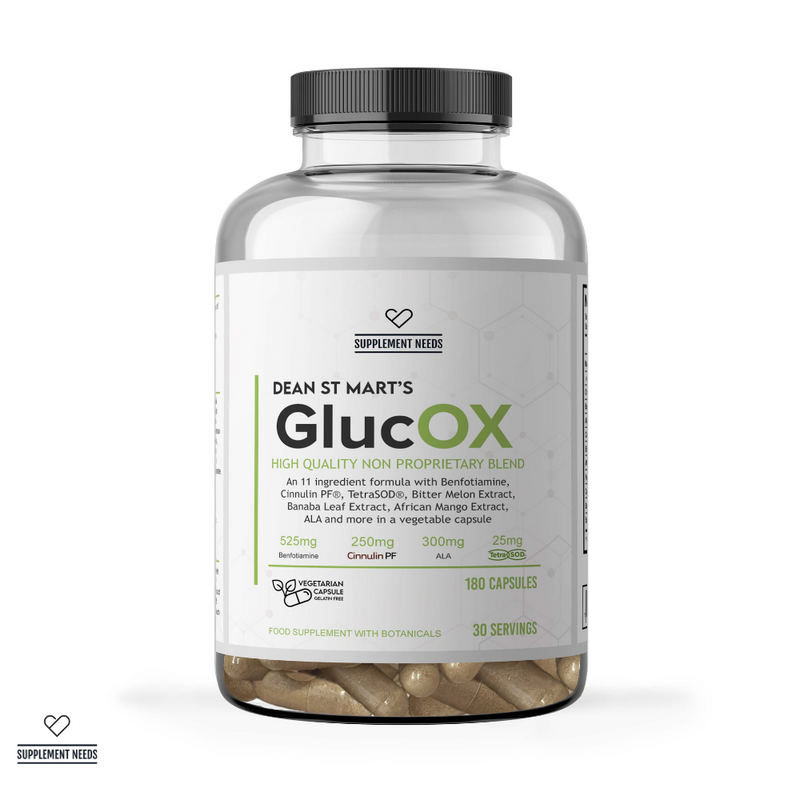For many people the word ‘Magnesium’ conjures up images of a metal burning brightly when introduced into the flame of a Bunsen burner. For others, Magnesium makes them think of exotic, lightweight automotive parts. But, did you know that Magnesium (in the form of Magnesium Bisglycinate) can potentially have some health benefits? Keep reading for the full story…
A note on terminology
Before we dive into the details of Magnesium, we first need to clarify the terminology that we’ll be using in this article (as you’ll probably be aware, the Supplement Needs team takes even the finest, seemingly minor details, seriously).
Shop around online, and you’ll see scores of generic-looking Magnesium supplements.
However, not all Magnesium supplements are created equal.
These range from cheap Magnesium supplements that are predominantly composed of Magnesium Oxide (which is not as readily absorbed by your body1), through to premium Magnesium supplements such as Magnesium Bisglycinate (which have maximal absorption).
Our point is - always check the label.
If the price seems to be too good to be true, it almost certainly is!
In this article, we’ll be exploring Magnesium Bisglycinate (which is also commonly referred to as ‘Magnesium Glycinate’ or ‘Magnesium Diglycinate’).
What is Magnesium Bisglycinate?
Given there are several variations of Magnesium used in supplements, what’s so special about Magnesium Bisglycinate?
Put simply, Magnesium Bisglycinate has excellent bioavailability (being more easily absorbed by the body). Studies2 have shown that even in patients with gastrointestinal trauma (such as individuals who have undergone ileal resection), this form of Magnesium has excellent absorption.
Why is bioavailability such a big deal?
Because, as we’ve written previously, it’s only worth taking a supplement if your body is able to actually absorb its contents.
The bioavailability of a supplement influences the degree and rate at which a metabolite (an intermediate or end product of metabolism) enters the body’s circulatory system and thus onward to the ‘site of action’3.
Note - sites of action can take a number of forms including anatomical (e.g. tissues), cellular (the cell the vitamin or mineral has to reach), or molecular (e.g. a cell surface receptor)4.
Okay, so we’ve established that Magnesium Bisglycinate is a highly bioavailable form of Magnesium. But, what is its composition?
Magnesium Bisglycinate is a magnesium salt of glycine and is composed of a single magnesium molecule bonded to two glycine molecules. The illustration below provides a visual representation of this structure: 
Put another way, Magnesium Bisglycinate is a chelated form of magnesium, where the elemental magnesium is bonded to an organic acid (in this case Glycine).
Why do this? It comes back to our old friend bioavailability.
Think of it like this; Magnesium is a mineral, and therefore is inorganic (being derived from the Earth). You, on the other hand, are an organic life form, being made up of complex biological molecules consisting of carbon atoms bonded with other elements.
So, in the case of a Magnesium supplement, you’re trying to get your body (organic) to absorb a mineral (inorganic). Therefore, it’s better to provide a helping hand.
This helping hand comes in the form of an organic amino acid (Glycine) being bonded to the Magnesium. Without going into too much detail, the organic acid effectively provides the Magnesium with a ‘piggyback’, helping it to pass through the intestinal wall and pass onwards into the bloodstream.
Glycine is used as the ligand (e.g. a molecule that donates a pair of electrons to the central metal atom) as it is one of the most stable amino acids and is a core building block of proteins. Glycine also has a number of potential health benefits itself, particularly as an anti-inflammatory5.
As studies have indicated, chelating an amino acid with Magnesium can have an impact upon bioavailability. One study characterised the situation as follows; ‘The in vivo Mg availability was not related to the Mg content of the supplements, but rather to the in vitro solubility and bioaccessibility’6.
This can be paraphrased as ‘the actual Magnesium content is less important than how bioavailable the Magnesium is’.
To sum up this section - Magnesium Bisglycinate is a chelated form of Magnesium that offers superior bioavailability compared to many other forms of Magnesium.
Tip - if you want to ensure you buy the very best Magnesium supplement, then check the amount of ‘elemental magnesium’ within a supplement. This is because Magnesium doesn’t naturally exist on its own and instead must form a ‘salt’ with another substance. Here at Supplement Needs the Magnesium ‘salt’ we use is Magnesium Bisglycinate. In our SN Magnesium Bisglycinate supplement the percentage of elemental Magnesium is 11%. In our SN Sleep Stack, the percentage of elemental Magnesium is 20%.
The importance of Magnesium
At this point, you’ve hopefully got a clear understanding of what Magnesium Bisglycinate is (and its advantages over other forms of Magnesium).
But, we’d just like to take a moment to underline the important role that Magnesium plays in your body.
After all, not many people realise that Magnesium is present in every cell type in the human body.
What does Magnesium do in the human body?
Given that Magnesium is present in every cell, it’s clear that it plays an important role in maintaining overall health and wellbeing.
As we wrote in our guide to multivitamins, Magnesium is what’s called a ‘cofactor’ in hundreds of enzyme systems in the body (i.e. it acts as a non-protein molecule to support a biochemical reaction, helping to kickstart or catalyse the reaction)7.
In turn, these enzyme systems regulate numerous biochemical reactions such as protein synthesis, muscle function and blood pressure regulation8.
We realise that this may seem a little abstract, so here’s what Magnesium does in more simple terms:
-
Contributes to cognitive function, helping to relay signals between your brain and body. It does this by acting as a ‘voltage-dependent blocker’ of NMDA (N-methyl-D-aspartate) receptors, preventing their excessive activation9. In effect, Magnesium acts as a ‘gatekeeper’, helping to modulate neuronal plasticity, learning and memory.
-
Contributes to a healthy heart beat. Did you know that Magnesium plays an important role in maintaining your heart beat? Magnesium works in conjunction with Calcium10. When Calcium attaches to the cells of your heart muscles, it stimulates the fibres to contract. Likewise, when Magnesium attaches to the cells of your heart muscles, it causes them to relax (acting as a physiologic Calcium blocker) - therefore keeping your heart pumping! (It’s for this reason that you’ll find Magnesium Taurate in Supplement Needs Electrolyte+)
-
Contributes to the regulation of muscle contractions. One of the better known functions of Magnesium is in the regulation of muscle contractions. As with the heart, Magnesium and Calcium compete to bind with the proteins in your muscles (such as Troponin C and Myosin). Where Calcium binds with a protein, it changes its shape causing the muscle to contract. Where Magnesium is able to bind with a protein, it causes the muscle to relax. Again, we see Magnesium acting as a physiologic Calcium blocker11.
-
Contributes to antioxidant production12. As you may be aware, antioxidants are molecules that neutralise free radicals and thus combat oxidative stress within your body. Magnesium is essential for the production of key antioxidants, particularly Glutathione (which is considered to be the body’s ‘master antioxidant’). Indeed, one study13 ‘established a strong, direct correlation between RBC Mg levels and GSH/GSSG concentration (circulating reduced/oxidised Glutathione).
-
Contributes to bone health. As a cofactor, Magnesium helps your body to make use of Calcium and Vitamin D - therefore contributing to overall bone health. More specifically, Magnesium has shown to be linked to higher bone mineral density. Indeed, in 2009 the European Food Safety Authority (EFSA) concluded that a cause and effect relationship has been established between the dietary intake of Magnesium and the maintenance of normal bone health14.
- Contributes to the production of DNA. Magnesium is an essential cofactor in almost all enzymatic systems involved in DNA processing15. Given that DNA is effectively your body’s ‘instruction book’, you can see how important Magnesium is!
If you think Magnesium contributes a great deal to your body you’d be right (and the above isn’t even an exhaustive list!).
Magnesium intake
By now you’ve probably grasped the importance of Magnesium for the overall wellbeing and function of your body.
But, how much do you need? And, where can you get it? Let’s answer those questions now.
Firstly, according to the UK’s National Health Service (NHS), men and women require the following amounts of Magnesium on a daily basis:
- 300 mg per day for men (aged 19 to 64 years).
-
270 mg per for women (aged 19 to 64 years).
However, when you take a deeper dive into the extant literature around Magnesium intake - especially for individuals who are engaging in strength training - the correct dosage depends on mg to kg ratios.
For example, in one double-blind study16, 26 untrained individuals were divided into two groups. One group (called ‘C’) received a placebo. The other group (called ‘M’) received a Magnesium supplement to bring their total Mg intake to 8 mg/kg body weight per day.
Each subject performed three sets of 10 reps, leg press and extension, three times a week. At the end of the study the M group demonstrated consistent differences in pre- and post-quadriceps torque measurements compared to the placebo group.
Furthermore, if you’re really hardcore and want to get blood work you can spot a Magnesium deficiency based upon the ALP value in your blood. Basically, if you have an alkaline phosphate enzyme value of less than 70 in your bloodwork, this indicates a Magnesium deficiency. Why? Because ALP is dependent on Magnesium. For example, one study17 found that depressed ALP activity could be reversed by adding Magnesium to the diet.
As for where you can obtain Magnesium, you must obtain it via either foodstuffs or supplementation. (As Magnesium is a mineral it cannot be produced by the body).
Sources that are known to be good sources of Magnesium include:
- Seeds.
- Whole wheat.
- Spinach.
- Quinoa.
- Dark chocolate.
- Avocado.
- Tofu.
- Bananas.
Important! - Despite Magnesium being available in a broad range of foodstuffs, studies and national dietary surveys indicate that many segments of the population are not consuming enough Magnesium. As one secondary analysis of the UK National Diet and Nutrition Survey characterised the situation; ‘Sizeable gaps were found for magnesium with 19% of young people in their twenties having intakes below the LRNI’ (Lower Reference Nutrient Intake). So, unlike some other micronutrients, Magnesium deficiency can affect myriad age groups. Further, Magnesium deficiency is a common problem in hospital patients, with a prevalence of about 10%18. Magnesium deficiency is also a risk factor if you suffer chronic conditions such as inflammatory bowel disease (IBS)19.

Supplement Needs Magnesium Bisglycinate
Magnesium deficiency
It’ll hardly come as a revelation to you to find that a bodily deficiency in Magnesium can have serious consequences for your health.
As we’ve observed above, Magnesium plays a critical role in hundreds of bodily systems, functions and reactions. But, what are the potential consequences of a Magnesium deficiency (known technically as Hypomagnesemia (characterised as a serum magnesium level below 1.46 mg/dL))?
Muscle twitches and cramps
We saw earlier that Magnesium plays an important role as a physiologic Calcium blocker. Where Calcium binds to cells within muscles it causes them to contract - Magnesium, when it binds to muscular cells causes them to relax.
Ergo, a deficiency in Magnesium can be related to the development of muscle cramps and twitches20.
It’s important to remember that there can be other causes of muscle cramps and twitches. Indeed, some scientists believe that muscle cramps and twitches can be idiopathic (that is, the underlying cause is unknown).
Apathy and depression
Given Magnesium’s relationship with your body’s neurotransmitters (and general cognitive function), it’s perhaps not surprising to find a link between Magnesium deficiency and depression.
This isn’t mere supposition, either. A solid body of evidence suggests a strong correlation between Magnesium deficiency and depressive disorders. For example, one 2015 study21 found a ‘significant association’ between low Magnesium intake and depression in adults.
Another study22 in 2019 found low serum Magnesium levels were associated with depressive symptoms.
Fatigue and muscle weakness
As one of the body’s most important electrolytes, Magnesium is integral to nerve signalling.
Whilst general tiredness can be attributed to multiple factors, a deficiency in Magnesium can be one possible cause. In fact, studies23 suggest that among the important early symptoms of hypomagnesemia are fatigue and weakness.
Arrhythmia
Earlier we saw the role that Magnesium plays in maintaining a regular, healthy, heartbeat.
It follows then that a deficiency in Magnesium can potentially lead to arrhythmia (an irregular heartbeat).
It’s very important to note, as studies do24, that ‘The importance of magnesium (Mg²⁺), a micronutrient implicated in maintaining and establishing a normal heart rhythm, is still controversial’.
Nevertheless, a plethora of studies support the notion of Magnesium and its relation to cardiac arrhythmias. As one study25 rather boldly states, ‘Magnesium is of great importance in cardiac arrhythmias. It increases the ventricular threshold for fibrillation’.
Osteoporosis
Magnesium’s role as a cofactor, allowing the body to make use of Calcium and Vitamin D - and thus contribute to bone health, means that a deficiency can potentially have an adverse impact upon bone health.
More specifically, Magnesium deficiencies have been highlighted in studies26 as a risk factor for osteoporosis (the general decrease in bone mineral density and mass).
Note - dietary intake of Vitamins D and K are also important risk factors for the development of osteoporosis2728.
Blood pressure
High blood pressure (a.k.a. hypertension), has been shown in a number of animal-based studies29 to arise in cases of Magnesium deficiency.
This in itself is a worrisome potential finding. However, the fact that chronic hypertension is a strong risk factor for heart disease and myocardial infarction is even more worrisome30.
The potential benefits of Magnesium Bisglycinate supplementation
Clearly then, you want to avoid any form of Magnesium deficiency and any concomitant health impacts that can arise from this.
However, aside from avoiding negative impacts, can the supplementation of Magnesium Bisglycinate have any positive impacts? We explore some of the potential health benefits associated with Magnesium supplementation below.
Improved mental health
One of the benefits of Magnesium with the most clearly established evidence base is the link between Magnesium intake and the occurrence of depressive disorders.
As one comprehensive meta-analysis31 (covering six observational studies with a total of 19,137 patients) found, there is a potential association between Magnesium deficiency and depression.
That’s not the only piece of evidence in support of the Magnesium/depression hypothesis.
A randomised clinical trial32 conducted in 2017 found that supplementation with Magnesium resulted in significant improvements in depressive symptoms. Further, the study also indicated that participants who were taking an antidepressant (specifically, SSRIs - Selective Serotonin Reuptake Inhibitors) experienced stronger benefits from Magnesium supplementation.
The authors of the study suggest that ‘in low magnesium states, high levels of calcium and glutamate may deregulate synaptic function, resulting in depression’.
Yet another study33 indicated that the severity of depression in participants correlated with reduced intracellular Magnesium, and that cellular levels normalised after successful treatment with antidepressants.
A study34 conducted in 2019 found that depressive symptoms could be associated with low serum Magnesium levels. Specifically, the authors summarised their findings as follows: ‘In this sample of adults receiving primary care, lower serum magnesium levels were associated with greater depressive symptoms, suggesting a biologic mechanism for the efficacy of magnesium supplementation to treat depression. Obtaining serum magnesium levels is safe, relatively easy, and inexpensive and could help individualise treatment’.
Improved bone health
As per the American Bone Health & Osteoporosis Foundation, ‘People with higher intakes of magnesium have a higher bone mineral density, which is important in reducing the risk of bone fractures and osteoporosis’35.
We mentioned earlier that Magnesium deficiencies can be a risk factor for the development of osteoporosis36. However, beyond osteoporosis, a lack of Magnesium can affect bone health in other ways.
One condition that can be particularly serious (especially in older adults) is sarcopenia. This refers to the involuntary loss of skeletal muscle mass and strength. Aside from the loss of muscle mass and strength, sarcopenia can have a number of second and third order effects37, including increased frailty, falls, decreased quality of life and conversely obesity (what some people call ‘skinny fat’, where an individual is flabby and overweight generally with fat around their waist or trunk, yet with minimal muscle mass and strength).
Regarding the relationship between sarcopenia and Magnesium, a systematic review38 of 45 studies found a ‘potential role for selenium and Magnesium on the prevention and treatment of sarcopenia’.
Beyond these studies is the simple fact that around 50 to 60% of your body’s Magnesium ‘resides as surface substituents of the hydroxyapatite mineral component of bone’39.
At the risk of oversimplifying things - Magnesium plays a crucially important role in maintaining strong, healthy bones!
To conclude this section, consider the findings of a long-term prospective cohort study which concluded that ‘low serum magnesium levels are associated with increased risk of fractures’40.
Maintain heart rhythm
Magnesium, or more specifically a deficiency of Magnesium, has been linked to arrhythmias (which can be crudely characterised as irregular heart beats)41.
Numerous studies have reinforced this view:
-
Up to 38% of people with ventricular arrhythmia (this being an arrhythmia within the heart’s lower chambers) have a Magnesium deficiency, whilst 72% have an excessive Mg deficiency42.
-
A piece of research from 2018 has linked low blood Magnesium levels with an increased risk of atrial and ventricular tachycardia (a tachycardia being an arrhythmia that causes your heart to beat too fast)43.
- A systematic review and meta-analysis found that Magnesium supplementation may reduce the risk of ventricular arrhythmias by 32% and the risk of supraventricular arrhythmias by 42%44.
On a broader basis, one meta-analysis45 found that the dietary intake of Magnesium is associated, not only with a reduced risk of heart failure, but also a reduced risk of stroke, diabetes and all-cause mortality (but not CHD or total CVD). As the authors concisely summarised their findings, ‘These findings support the notion that increasing dietary magnesium might provide health benefits’.
Improved physical performance
Whilst there is a slightly more limited evidence base for this benefit, some studies have indicated that Magnesium supplementation (in light of widespread Mg deficiencies in the general population) may improve physical performance.
Given that Magnesium takes part in the metabolism of energy and the maintenance of normal muscle function, one study46 has indicated a reciprocal relationship between exercise and Magnesium. That is, increased levels of physical activity require the intake of higher volumes of Magnesium.
Furthermore, a study47 published in the journal Nutrients suggests that Magnesium may enhance physical performance in several ways:
-
There is a positive association between Mg status and muscle performance, including lower-leg power, knee extension torque, ankle extension strength, grip strength, rotation, jumping performance and maximal isometric trunk flexion (as per a number of cross-sectional studies4849 referenced in the aforementioned study).
-
Animal studies suggest that Magnesium may improve exercise performance by enhancing glucose availability in the brain, muscle and blood, in addition to reducing/delaying lactate accumulation in muscle50.
- For certain population groups, Magnesium supplementation may have an impact on the reduction of skeletal muscle cramps. Whilst the extant literature is conflicting (to a degree), there is some limited evidence51 to suggest that Magnesium supplementation may have a prophylactic effect upon muscle cramps in pregnant women.
Pain management
This is a widely debated and contentious point, but it has been suggested that Magnesium may play a role in pain management.
Although Magnesium does not have a direct analgesic effect upon the body, studies have indicated that it could be an analgesic adjacent - ‘the beneficial effects of magnesium treatment have also been demonstrated in patients suffering from neuropathic pain, such as in those with malignancy-related neurologic symptoms, postherpetic neuralgia, diabetic neuropathy, and chemotherapy-induced peripheral neuropathy. In addition, magnesium therapy has been shown to be effective in alleviating dysmenorrhea, headaches, and acute migraine attacks’52.
The jury is still very much on the effect of Magnesium supplementation on pain. Three researchers succinctly summarised the current situation:
‘Magnesium is playing an evolving role in pain management, but a more thorough understanding of the mechanisms underlying its antinociceptive action and additional clinical studies are required to clarify its role as an analgesic adjuvant’.
Harm prevention
If you’re one of our regular readers who consider themselves to be an ‘enhanced’ bodybuilder, then you need to know about Magnesium’s role in reducing harm related to PEDs (performance enhancing drugs) as often discussed by our Formulator Dr Dean St. Mart PhD.
Androgens, such as trenbolone, can slow down the action of COMT within the brain, (COMT being Catechol-O-methyltransferase). As COMT is the main methylation enzyme responsible for breaking down dopamine in the brain, a deficiency in Magnesium which is at the core of the COMT enzyme, results in the activity of COMT slowing down (as a result of androgen use) leading to both anxiety and insomnia (hence the term ‘tremsonia’).

Supplement Needs Sleep Stack and Magnesium Bisglycinate Stack
Magnesium acts as a cofactor for COMT, helping to maintain its activity.
To put this more simply, if you’re using a PED such as trenbolone then you should consider making a Magnesium Bisglycinate supplement part of your ‘staple’ supplementation regime.
It’s for this reason that we’ve also bundled our Sleep Stack and Magnesium Bisglycinate together in a great value package.
Buy the best: buy Supplement Needs
We hope you’ve found this guide to Magnesium Bisglycinate (and Magnesium more widely) both useful and helpful.
We also hope you’ve learnt how important Magnesium supplementation can be.
And, naturally, if you’re going to supplement your diet with Magnesium, you’re going to want to put the very best in your body.
So, try Supplement Needs’ Magnesium Bisglycinate today. It ticks all the boxes for a premium Magnesium supplement:
- Bioavailable - as a chelated form of Magnesium, Magnesium Bisglycinate is highly absorbable by the body, providing an efficacious dose ✅
- Value - not only is our Magnesium Bisglycinate bioavailable, the Glycine can have an additional anti-inflammatory effect. Win, win! ✅
- Researched and formulated by Dr. Dean St Mart PhD ✅
- Produced in line with Good Manufacturing Practices - ensuring you get a consistent, quality dose every time ✅
- Magnesium Stearate - the addition of Magnesium Stearate as a ‘flow agent’ to this supplement allows the active ingredients to better reach and be absorbed by the correct parts of the bowel ✅
- 151 mg of elemental Magnesium - an efficacious dose of magnesium within each serving of 2 capsules ✅
Plus, we offer free shipping on all orders over £20. If you’re serious about protecting your future health, invest in Magnesium Bisglycinate today.
Shop Supplement Needs Magnesium Bisglycinate now
Disclaimer
The information on this website should not be used as a substitute for professional medical care or advice. If you have questions about your health, please contact your doctor.
References
1. Lindberg J, Zobitz M, Poindexter J, Pak C. Magnesium bioavailability from magnesium citrate and magnesium oxide [online]. Available at: https://pubmed.ncbi.nlm.nih.gov/2407766/ (Accessed on 15th January 2024).
2. Schuette S, Lashner B, Janghorbani M. Bioavailability of magnesium diglycinate vs magnesium oxide in patients with ileal resection [online]. Available at: https://pubmed.ncbi.nlm.nih.gov/7815675/ (Accessed on 15th January 2024).
3. Jennifer Le. Drug Bioavailability [online]. Available at: https://www.msdmanuals.com/en-gb/professional/clinical-pharmacology/pharmacokinetics/drug-distribution-to-tissues (Accessed on 15th January 2024).
4. Longuespee R, Theile D, Fresnais M, Burhenne J, Weiss J, Haefeli W. Approaching sites of action of drugs in clinical pharmacology: New analytical options and their challenges [online]. Available at: https://bpspubs.onlinelibrary.wiley.com/doi/full/10.1111/bcp.14543# (Accessed on 15th January 2024).
5. Aguayo-Cerón K, Sánchez-Muñoz F, Gutierrez-Rojas R (et. al). Glycine: The Smallest Anti-Inflammatory Micronutrient [online]. Available at: https://www.ncbi.nlm.nih.gov/pmc/articles/PMC10379184/ (Accessed on 15th January 2024).
6. Blancquaert L, Vervaet C, Derave W. Predicting and Testing Bioavailability of Magnesium Supplements [online]. Available at: https://www.ncbi.nlm.nih.gov/pmc/articles/PMC6683096/ (Accessed on 15th January 2024).
7. Baaij J, Hoenderop J, Bindels R. Magnesium in man: implications for health and disease [online]. Available at: https://pubmed.ncbi.nlm.nih.gov/25540137/ (Accessed on 15th January 2024).
8. Rude RK. Magnesium. In: Coates PM, Betz JM, Blackman MR, Cragg GM, Levine M, Moss J, White JD, eds. Encyclopaedia of Dietary Supplements. 2nd ed. New York, NY: Informa Healthcare; 2010:527-37.
9. Hou H, Wang L, Fu T, Papasergi M, Yule D, Xia H. Magnesium acts as a second messenger in the regulation of NMDA receptor mediated CREB signalling in neurons [online]. Available at: https://www.ncbi.nlm.nih.gov/pmc/articles/PMC8202957/ (Accessed on 15th January 2024).
10. Iseri L, French J. Magnesium: nature’s physiologic calcium blocker [online]. Available at: https://pubmed.ncbi.nlm.nih.gov/6375330/ (Accessed on 15th January 2024).
11. Potter J, Robertson S, Johnson J. Magnesium and the regulation of muscle contraction [online]. Available at: https://pubmed.ncbi.nlm.nih.gov/7286246/ (Accessed on 15th January 2024).
12. Zheltova A, Kharitonova M, Iezhitsa I, Spasov A. Magnesium deficiency and oxidative stress: an update [online]. Available at: https://www.ncbi.nlm.nih.gov/pmc/articles/PMC5112180/ (Accessed on 15th January 2024).
13. Barbagallo M, Dominguez L, Tagliamonte M, Resnick L, Paolisso G. Effects of glutathione on red blood cell intracellular magnesium: relation to glucose metabolism [online]. Available at: https://pubmed.ncbi.nlm.nih.gov/10406827/ (Accessed on 15th January 2024).
14. Rondanelli M, Faliva M, Tartara A, Gasparri C, Perna S, Infantino V, Riva A, Petrangolini G, Peroni G. An update on magnesium and bone health [online]. Available at: https://pubmed.ncbi.nlm.nih.gov/33959846/ (Accessed on 15th January 2024).
15. Hartwig A. Role of magnesium in genomic stability [online]. Available at: https://pubmed.ncbi.nlm.nih.gov/11295157/# (Accessed on 15th January 2024).
16. Brilla L, Haley T. Effect of magnesium supplementation on strength training in humans [online]. Available at: https://pubmed.ncbi.nlm.nih.gov/1619184/ (Accessed on 16th January 2024).
17. Pimstone B, Eisenberg E, Stallone W. Decrease in Serum Alkaline Phosphatase Activity Produced by Magnesium Depletion in Rats [online]. Available at: https://journals.sagepub.com/doi/abs/10.3181/00379727-123-31441 (Accessed on 16th January 2024).
18. Swaminathan R. Magnesium Metabolism and its Disorders [online]. Available at: https://www.ncbi.nlm.nih.gov/pmc/articles/PMC1855626/ (Accessed on 16th January 2024).
19. Galland L. Magnesium and inflammatory bowel disease [online]. Available at: https://pubmed.ncbi.nlm.nih.gov/3294519/ (Accessed on 16th January 2024).
20. Gragossian A, Bashir K, Bhutta B, Friede R. Hypomagnesemia [online]. Available at: https://www.ncbi.nlm.nih.gov/books/NBK500003/ (Accessed on 16th January 2024).
21. Tarleton E, Littenberg B. Magnesium Intake and Depression in Adults [online]. Available at: https://www.jabfm.org/content/28/2/249 (Accessed on 16th January 2024).
22. Tarleton E, Kennedy A, Rose G, Crocker A, Littenberg B. The Association between Serum Magnesium Levels and Depression in and Adult Primary Care Population [online]. Available at: https://www.mdpi.com/2072-6643/11/7/1475 (Accessed on 16th January 2024).
23. Jahnen-Dechent W, Ketteler M. Magnesium basics [online]. Available at: https://www.ncbi.nlm.nih.gov/pmc/articles/PMC4455825/ (Accessed on 16th January 2024).
24. Negru A, Pastorcici A, Crisan S, Cismaru G, Popescu F, Luca C. The Role of Hypomagnesemia in Cardiac Arrhythmias: A Clinical Perspective [online]. Available at: https://www.ncbi.nlm.nih.gov/pmc/articles/PMC9598104/ (Accessed on 16th January 2024).
25. Stűhlinger H, Kiss K, Smetana R. Significance of magnesium in cardiac arrhythmias [online]. Available at: https://pubmed.ncbi.nlm.nih.gov/11105328/# (Accessed on 16th January 2024).
26. Rondanelli M, Faliva M, Tartara A, Gasparri C, Perna S, Infantino V, Riva A, Petrangolini G, Peroni G. An update on magnesium and bone health [online]. Available at: https://www.ncbi.nlm.nih.gov/pmc/articles/PMC8313472/ (Accessed on 16th January 2024).
27. Wang P, Zhang H. Review of dietary risk factors for osteoporosis [online]. Available at: https://pubmed.ncbi.nlm.nih.gov/12731296/# (Accessed on 16th January 2024).
28. Sunyecz J. The use of calcium and vitamin D in the management of osteoporosis [online]. Available at: https://www.ncbi.nlm.nih.gov/pmc/articles/PMC2621390/ (Accessed on 16th January 2024).
29. Ettehad D, Emdin C, Kiran A, Anderson S, Callender T, Emberson J, Chalmers J, Rodgers A, Rahimi K. Blood pressure lowering for prevention of cardiovascular disease and death: a systematic review and meta-analysis [online]. Available at: https://www.thelancet.com/pdfs/journals/lancet/PIIS0140-6736(15)01225-8.pdf (Accessed on 16th January 2024).
30. Picariello C, Lazzeri C, Attanà P, Chiostri M, Gensini G, Valente S. The Impact of Hypertension on Patients with Acute Coronary Syndrome [online]. Available at: https://www.ncbi.nlm.nih.gov/pmc/articles/PMC3124673/# (Accessed on 16th January 2024).
31. Cheungpasitporn W, Thongprayoon C, Mao M, Srivali N, Ungprasert P, Varothai N, Sunguankeo A, Kittanamongkolchai W, Erickson S. Hypomagnesemia linked to depression: a systematic review and meta-analysis [online]. Available at: https://onlinelibrary.wiley.com/doi/10.1111/imj.12682 (Accessed on 16th January 2024).
32. Tarleton E, Littenberg B, MacLean C, Kennedy A, Daley C. Role of magnesium supplementation in the treatment of depression: A randomised clinical trial [online]. Available at: https://journals.plos.org/plosone/article?id=10.1371/journal.pone.0180067 (Accessed on 16th January 2024).
33. Nechifor M. Magnesium in major depression [online]. Available at: https://www.jle.com/fr/revues/mrh/e-docs/magnesium_in_major_depression_282142/article.phtml (Accessed on 16th January 2024).
34. Tarleton E, Kennedy A, Rose G, Crocker A, Littenberg B. The Association between Serum Magnesium Levels and Depression in an Adult Primary Care Population [online]. Available at: https://www.mdpi.com/2072-6643/11/7/1475 (Accessed on 16th January 2024).
35. Bone Health & Osteoporosis Foundation. Minerals for Bone Health [online]. Available at: https://americanbonehealth.org/nutrition/minerals-for-bone-health/# (Accessed on 16th January 2024).
36. Rondanelli M, Faliva M, Tartara A, Gasparri C, Perna S, Infantino V, Riva A, Petrangolini G, Peroni G. An update on magnesium and bone health [online]. Available at: https://www.ncbi.nlm.nih.gov/pmc/articles/PMC8313472/ (Accessed on 16th January 2024).
37. Hunter G, Singh H, Carter S, Bryan D, Fisher G. Sarcopenia and Its Implications for Metabolic Health [online]. Available at: https://www.ncbi.nlm.nih.gov/pmc/articles/PMC6431367/ (Accessed on 16th January 2024).
38. Dronkelaar C, Fultinga M, Hummel M, Kruizenga H, Weijs P, Tieland M. Minerals and Sarcopenia in Older Adults: An Updated Systematic Review [online]. Available at: https://www.sciencedirect.com/science/article/pii/S1525861023004814# (Accessed on 16th January 2024).
39. Grober U, Schmidt J, Kisters K. Magnesium in Prevention and Therapy [online]. Available at: https://www.ncbi.nlm.nih.gov/pmc/articles/PMC4586582/ (Accessed on 16th January 2024).
40. Kunutsor S, Whitehouse M, Blom A, Laukkanen J. Low serum magnesium levels are associated with increased risk of fractures: a long-term prospective cohort study [online]. Available at: https://www.ncbi.nlm.nih.gov/pmc/articles/PMC5570773/ (Accessed on 16th January 2024).
41. Stuhlinger H, Kiss K, Smetana R. Significance of magnesium in cardiac arrhythmias [online]. Available at: https://pubmed.ncbi.nlm.nih.gov/11105328/# (Accessed on 16th January 2024).
42. Baker W. Treating arrhythmias with adjunctive magnesium: identifying future research directions [online]. Available at: https://academic.oup.com/ehjcvp/article/3/2/108/2669829?login=false (Accessed on 16th January 2024).
43. Tangvoraphonkchai K, Davenport A. Magnesium and Cardiovascular Disease [online]. Available at: https://pubmed.ncbi.nlm.nih.gov/29793664/ (Accessed on 16th January 2024).
44. Salaminia S, Sayehmiri F, Angha P, Sayehmiri K, Motedayen M. Evaluating the effect of magnesium supplementation and cardiac arrhythmias after acute coronary syndrome: a systematic review and meta-analysis [online]. Available at: https://www.ncbi.nlm.nih.gov/pmc/articles/PMC6025730/ (Accessed on 16th January 2024).
45. Fang X, Wang K, Han D, He X, Wei J, Zhao L, Imam M, Ping Z, Li Y, Xu Y, Min J, Wang F. Dietary magnesium intake and the risk of cardiovascular disease, type 2 diabetes, and all-cause mortality: a dose-response meta-analysis of prospective cohort studies [online]. Available at: https://bmcmedicine.biomedcentral.com/articles/10.1186/s12916-016-0742-z (Accessed on 16th January 2024).
46. Nielsen F, Lukaski H. Update on the relationship between magnesium and exercise [online]. Available at: https://pubmed.ncbi.nlm.nih.gov/17172008/ (Accessed on 16th January 2024).
47. Zhang Y, Xun P, Wang R, Mao L, He K. Can Magnesium Enhance Exercise Performance? [online]. Available at: https://www.ncbi.nlm.nih.gov/pmc/articles/PMC5622706/ (Accessed on 16th January 2024).
48. Santos D, Matias C, Monteiro C, Silva A, Rocha P, Minderico C, Sardinha L, Laires M. Magnesium intake is associated with strength performance in elite basketball, handball and volleyball players [online]. Available at: https://pubmed.ncbi.nlm.nih.gov/21983266/ (Accessed on 16th January 2024).
49. Matias C, Santos D, Monteiro C, Silva A, Raposo M, Martins F, Sardinha L, Bicho M, Laires M. Magnesium and strength in elite judo athletes according to intracellular water changes [online]. Available at: https://pubmed.ncbi.nlm.nih.gov/20860960/ (Accessed on 16th January 2024).
50. Cheng S, Yang D, Lee C, Pan H, Lin M, Chen S, Cheng F. Effects of magnesium sulphate on dynamic changes of brain glucose and its metabolites during a short-term forced in gerbils [online]. Available at: https://pubmed.ncbi.nlm.nih.gov/17345113/ (Accessed on 16th January 2024).
51. Garrison S, Korownyk C, Kolber M, Allan G, Musini V, Sekhon R, Dugré N. Magnesium for muscle cramps [online]. Available at: https://pubmed.ncbi.nlm.nih.gov/32956536/ (Accessed on 16th January 2024).
52. Na H, Ryu J, Do S. Magnesium in the Central Nervous System [online]. Available at: https://www.ncbi.nlm.nih.gov/books/NBK507245/ (Accessed on 16th January 2024).























